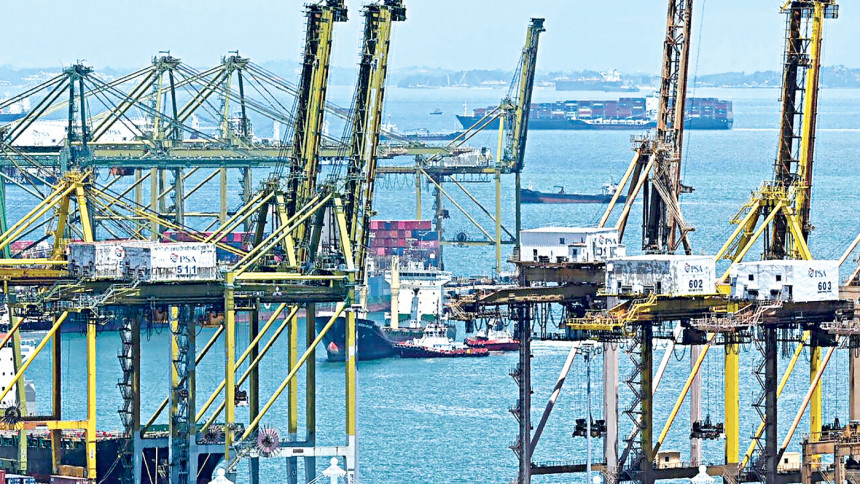OECD lowers global, US economic growth forecasts

The OECD warned Tuesday of an "uneven" global economic recovery as it lowered its 2021 growth forecasts for the world and the United States while raising the outlook for Europe.
The world economy has bounced back this year on the back of stimulus measures, the rollout of effective Covid vaccines and the resumption of many economic activities, the Organisation for Economic Co-operation and Development (OECD) said.
"The recovery remains very uneven, with strikingly different outcomes across countries," the OECD said in its interim economic outlook.
Global gross domestic product has surpassed its pre-pandemic level following last year's Covid-induced recession.
Global output is now expected to expand by 5.7 per cent this year, down 0.1 percentage points from the organisation's previous forecast in May. But the outlook for 2022 has slightly improved, with 4.5 per cent growth now expected, up by 0.1 points.
"Output and employment gaps remain in many countries, particularly in emerging-market and developing economies where vaccination rates are low," the report said.The OECD lowered its growth outlook for the United States, from 6.9 to 6.0 per cent this year. The US Congressional Budget Office has forecast 6.7 per cent growth for the world's top economy.
The OECD's eurozone forecast, however, was raised by one point to 5.3 per cent, though the outlook varied within the single-currency bloc, with higher growth now expected in France, Italy and Spain while Germany was not performing as well.
The growth prospects of Argentina, Brazil, Mexico, South Africa, South Korea and Turkey have also improved, while those of Australia, Britain, Japan and Russia were lowered. The forecast for China, the world's second biggest economy and a driver of global growth, remained unchanged at 8.5 per cent.
The impact of the Delta variant of the coronavirus has "so far been relatively mild" in countries with high vaccination rates, but it has lowered the momentum elsewhere and added pressures to global supply chains and costs, the OECD said.
"Sizeable uncertainty remains," the report said.
"Faster progress in vaccine deployment, or a sharper rundown of household savings would enhance demand and lower unemployment but also potentially push up near-term inflationary pressures," it said.
However, it added, "slow progress in vaccine rollout and the continued spread of new virus mutations would result in a weaker recovery and larger job losses.
"Earlier this month, United Nations chief Antonio Guterres expressed disappointment that vaccine-manufacturing nations have been unable to ramp up production toward the goal of vaccinating some 70 per cent of the world population by the first half of 2022.
"Covid-19 is a wake-up call, and we are oversleeping," Guterres said.
Source: www.thedailystar.net
